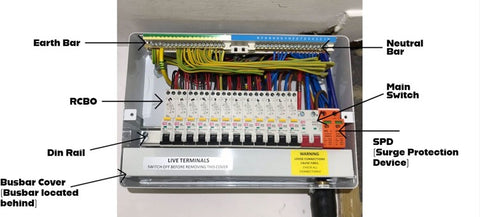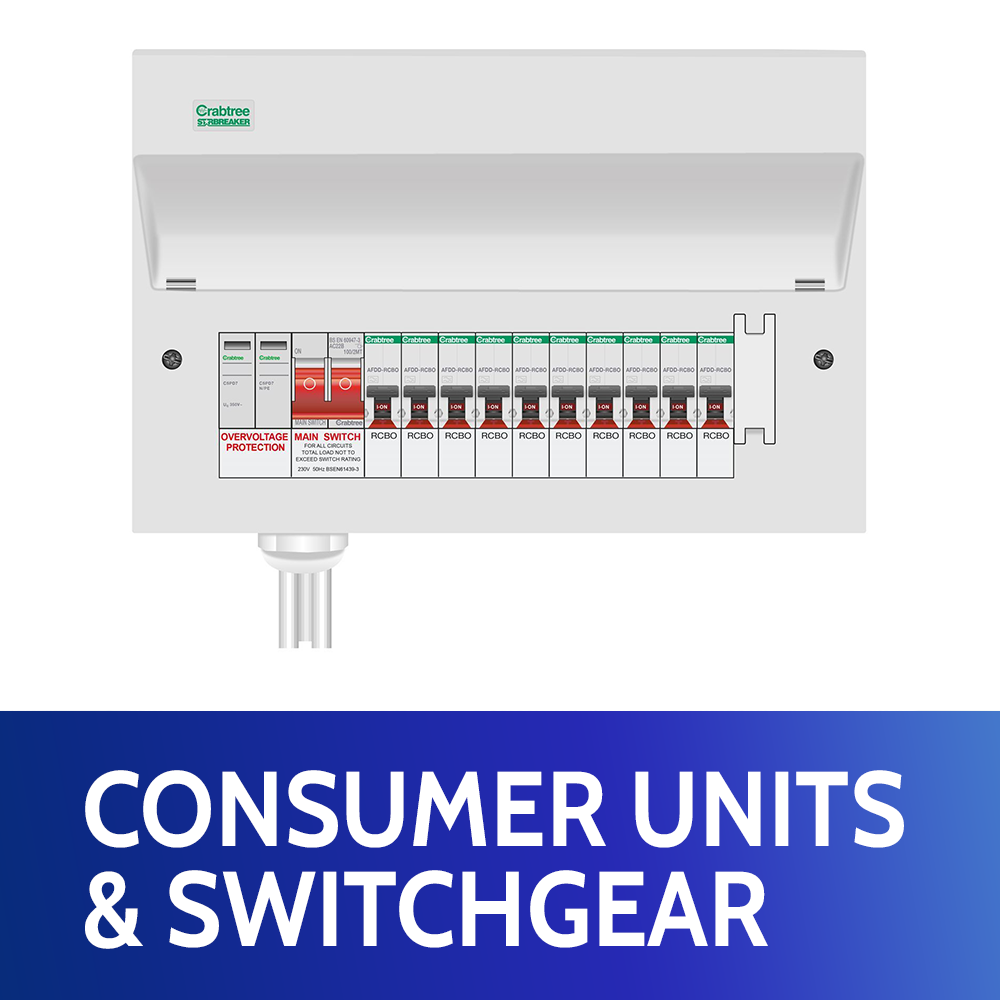A Comprehensive Guide to Maintaining Your RCBO CONSUMER UNITS Effectively
A Comprehensive Guide to Maintaining Your RCBO CONSUMER UNITS Effectively
Blog Article
The Duty of Consumer Units in Effective Energy Administration Solution
Consumer units are important to effective power administration systems, functioning as the key circulation points for electric power within frameworks. By integrating circuit breakers, they protect circuits from prospective overloads, therefore keeping safety and avoiding extensive outages. The arrival of smart technologies has even more enhanced their capability, enabling real-time information monitoring and nuanced energy usage evaluation. This assimilation not just optimizes power usage yet additionally assists in the incorporation of renewable energy resources, thus promoting lasting methods. Exactly how, after that, do these innovations translate to tangible advantages in everyday power administration?
Recognizing Consumer Units

Understanding the duty of customer systems starts with recognizing their essential function in protecting electric systems. By isolating mistakes within particular circuits, customer devices prevent extensive blackouts and potential fire hazards. This isolation is attained through making use of circuit breakers that journey or fuses that strike when a mistake is detected, consequently removing the electric flow to the impacted circuit.
Moreover, consumer units facilitate the orderly distribution of power, boosting the performance of energy usage. They allow for the methodical administration of electric lots, which can be specifically important in industrial and industrial settings where demand can change substantially. Properly kept customer devices add to the long life of electrical systems and aid in reducing downtime brought on by electric failures, inevitably sustaining the smooth operation of energy-dependent centers.
Smart Technologies Combination

A vital advantage of wise customer units is their capability to leverage advanced formulas and equipment learning for anticipating analytics. This permits preemptive modifications based upon use patterns, weather report, and various other variables, significantly increasing overall effectiveness. Wise consumer systems assist in demand action programs, where energy use can be dynamically adjusted during top periods to stabilize the grid and reduce prices.
The combination of renewable resource resources, such as solar and wind, is additionally streamlined through wise customer systems. By intelligently managing the intermittency of these resources, these systems make certain a balanced and reputable energy supply. In addition, smart consumer devices enhance customer involvement by giving comprehensive insights and push-button control capabilities through mobile applications, fostering a more proactive strategy to power preservation and sustainability.
Tracking Power Intake
Structure on the abilities of smart technologies integration, keeping track of energy intake becomes an important focus within power his comment is here administration systems. Efficient monitoring acts as the structure for recognizing power inadequacies and applying corrective measures. By leveraging innovative metering infrastructure (AMI), real-time data on power usage can be collected at granular degrees, supplying important understandings into usage patterns and peak demand periods. This data-centric method makes it possible for both consumers and energy managers to make informed decisions intended at reducing waste and improving overall performance.
Smart meters and Web of Points (IoT) tools play a critical duty in this tracking process. These devices can track power use in real-time, transferring information to centralized systems for evaluation. The accumulated information is after that refined through advanced formulas to detect anomalies, predict future intake, and recommend optimization techniques. In addition, cloud-based remedies provide scalable platforms for keeping and analyzing huge datasets, promoting remote monitoring and control.
The integration of these technologies not only encourages consumers with detailed details regarding their energy use but likewise supports energy suppliers in handling load distribution better. Eventually, exact and continuous surveillance is essential for attaining power performance, expense financial savings, and sustainability objectives within power administration systems.
Optimizing Device Usage

One effective technique includes recognizing optimal and off-peak hours to change energy-intensive activities, such as laundry or dishwashing, to times when power demand is lower. This not just minimizes strain on the grid yet additionally profits from lower power tolls. Additionally, integrating artificial intelligence algorithms permits predictive upkeep, making sure home appliances run at ideal performance and lengthening their life-span.
Energy administration systems can additionally incorporate user-specific choices and actions to customize device usage schedules. Smart illumination systems can readjust illumination based on occupancy and RCBO CONSUMER UNITS natural light schedule, while Heating and cooling systems can maintain comfort levels without too much power use.
Supporting Sustainability
Advertising sustainability within energy administration systems involves not only improving efficiency yet also cultivating ecologically responsible practices. Customer units are important to this process, as they provide real-time data and control mechanisms that make it possible for individuals to monitor and decrease their power consumption. By leveraging sophisticated innovations, consumer devices can identify energy-saving chances and assist in the combination of sustainable energy sources like solar and wind power.
One critical aspect of advertising sustainability is informing consumers on the advantages of accountable power use. Through comprehensive insights supplied by consumer devices, users can make enlightened choices that decrease their carbon impact. These units can advise optimal times for running high-energy home appliances based on grid need and sustainable power schedule, thus minimizing dependence on fossil fuels.
Moreover, customer units support the adoption of smart grid technologies, which boost the total performance and dependability of power distribution. By enabling two-way interaction between customers and energy companies, these systems can dynamically get used to power needs, lowering waste and promoting making use of lasting power methods.
Final Thought
Consumer units, as important elements of power management systems, substantially boost electrical security and effectiveness within buildings with circuit defense and smart modern technology assimilation. Furthermore, the consolidation of renewable power resources promotes sustainable practices, adding to decreased general power usage and reduced carbon impacts.
Advances in smart technologies have reinvented the capabilities of this energy management systems, especially via the integration of smart customer units.Building on the abilities of wise modern technologies integration, monitoring power consumption ends up being a vital emphasis within energy administration systems.Efficient home appliance use optimization is a crucial component of energy monitoring systems, aiming to enhance efficiency and decrease unnecessary power intake.Customer units, as essential parts of power administration systems, significantly enhance electrical safety and effectiveness within structures with circuit security and smart technology integration. Furthermore, the incorporation of renewable power resources advertises lasting methods, contributing to decreased overall energy usage and reduced carbon footprints.
Report this page